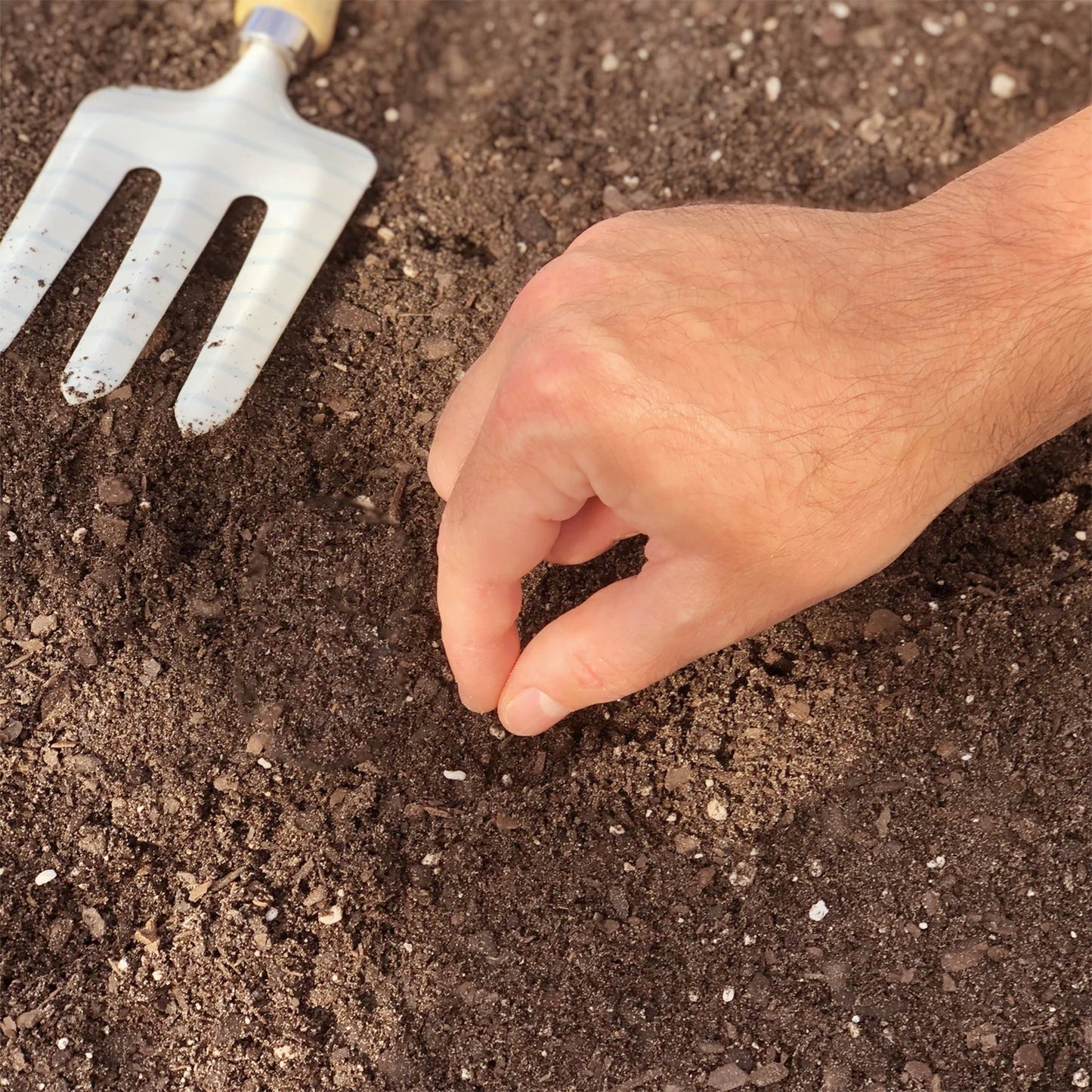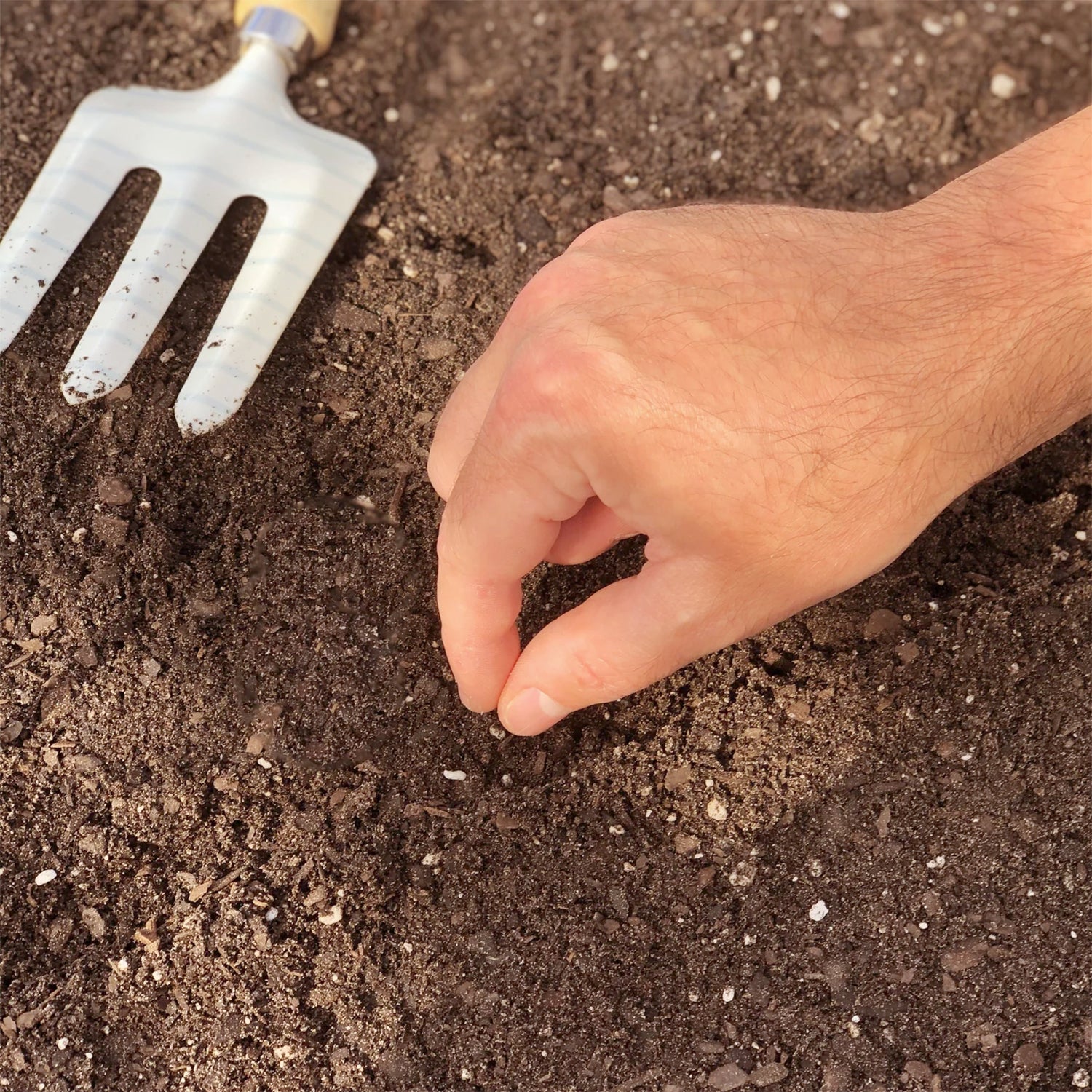Pick Your Savings Sale - Up to $25 Off. View Offers >
Proudly Packaged in Canada
Cucumber, Homemade Pickles Seeds
Earn 3 points for this item with our
rewards program.

Grow your own cucumbers for delicious homemade pickles!
Homemade Pickle cucumbers are grown specifically for pickling. This variety produces 5-15 cm (2-6") long green cucumbers with solid crisp interiors that make the best pickles, but could also be used as petite slicers. Its compact, bush-type vines have high yields and are ideal for container gardens and small spaces.
- SKU: 143722
- Common Name: Cucumber
- Botanical Name: Cucumis sativus
Safe
for Bees
Good For Pollinators
Grows
Best In:
Days to
Germination:
Water
Needs:
Days to
Maturity:
Best
Container Size:
Growing Height:
- Plant Type: Vegetable
- Plant Lifecycle: Annual (plant every year)
- Seed Type: Open Pollinated
- Fill Weight (grams): 700 mg
- Approximate Seed Count: 20-25
- Characteristics: Attracts bees
- Colour: Green
- Water Needs: Average 2.5-5 cm (1-2 in.) per week
- Landscape Use: Edible Garden
- Resistance: Disease
- Companion Planting:
Beans, Dill, Lettuce, Nasturtiums, Oregano, Radish, Sunflowers. Dill is believed to provide protection against aphids and mites. Nasturtium acts as a deterrent for aphids, beetles, and bugs while also enhancing growth and flavor. Oregano serves as a general pest deterrent. Radish, and nasturtium repel cucumber beetles, with radish also warding off flea beetles.
- Flavour: Sweet and crunchy
- Preparation Ideas: Best used for pickles.
Cucumber's do not transplant well and seeds should be sown directly into the garden when the soil is warm and all danger of frost is past. Optimum soil temperature (not air temperature) should be 15-35°C (59-95°F) for seeds to germinate. Planting at a lower temperature will delay germination. Space seeds and plant to the depth indicated below. Press seeds into the soil to ensure good contact and cover with 1.3 cm (1/2 in.) of soil. After planting, water seeds with a gentle mist or shower. It is critical to keep the soil consistently moist, but not soggy during germination. When your seedlings reach a height of a few centimetres (inches) and have developed 2 or 3 pairs of leaves, it is important to thin them out, according to the plant spacing indicated below. Do not allow the soil to become dry, as young plants have underdeveloped roots and can quickly dehydrate, particularly in windy conditions. Cucumber seeds can be succession planted every 3 weeks until mid-July for a continuous supply of cucumbers.
- Planting Depth: 1.3 cm (1/2in.)
- Seed Spacing: Sow cucumber seeds roughly 10 cm (4 in.) apart in rows, keeping rows approximately 120 cm (48 in.) apart.
- Plant Spacing: 30 cm (12 in.)
- Instructions for Nutrient Care: Apply SUPERThrive once per week. Soak in solution of 1/4 tsp per gal for 15 min. or longer depending on size and type.
- Cucumber vines can quickly take over and can be grown on a trellis or some form of other support as they grow. This raises them off the ground and keeps the fruit clean and free from rot. It also frees up valuable garden space for other crops.
- Cucumber vines require plenty of water to grow well and produce a good harvest. Wilting leaves is a sign the plants are thirsty. Avoid water-stressed cucumber plants by deep watering twice a week and applying mulch such as straw, dried leaves or compost to the soil to retain moisture and reduce water loss due to evaporation. *Plants can be covered with a shade cloth to prevent them from getting scorched by the sun and keep them cool.
- Plants not producing fruit? Cross-pollinating type cucumbers rely on the transfer of pollen from male to female flowers within the same plant or between different plants. Only female flowers set fruit, so it depends if your flowers are female or male as to whether they set fruit. The flowers also require plenty of pollination from bees, and you can try attracting bees into your garden by planting bee-friendly flowers to increase pollination.
- To prevent diseases, avoid watering the plant leaves and provide good air circulation around the plants.
- Harvest cucumbers regularly to encourage more fruit. They are ready to pick when they are firm but still slightly tender. Overripe cucumbers can get bitter and lose their crispness.
- It is best to pick cucumbers in the morning when temperatures are cool. Cut the stem or twist fruit off rather than pulling off the vine as this can damage the vines and result in reduced fruit production. It is a good idea to immediately place picked cucumbers in cold water to cool down the fruit to increase their quality and shelf life.




Cucumber, Homemade Pickles Seeds
Register to receive a notification when this item comes back in stock.
Thanks! We'll let you know when this item is back in stock.
You may also like

Join our rewards program today to start saving!

Free Shipping on orders over $35

There are a ton of ways to earn!







